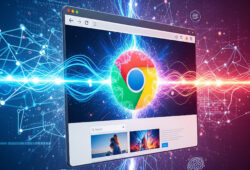In the dynamic world of digital marketing, Artificial Intelligence (AI) stands as a revolutionary force reshaping the landscape. Its impact reverberates across multiple dimensions, fundamentally altering the way businesses approach marketing strategies. Here’s a closer look at how AI is redefining digital marketing and why it’s pivotal for the marketing paradigm of 2024 and beyond.
Revolutionizing Digital Marketing Strategies: AI’s Role in the Digital Sphere
1. Enhancing Customer Segmentation
AI-enabled insights empower businesses to amass and scrutinize customer data, paving the way for meticulous customer profiling. This precision facilitates highly targeted marketing campaigns, delivering bespoke messages that resonate deeply with individual customers.
2. Tailoring Content for Personalized Engagement
The ability of AI to curate personalized content for marketing campaigns is a game-changer. From aligning content with customer interests to adapting tonality and formats based on individual preferences, this personal touch elevates customer engagement and boosts conversion rates.
3. Streamlining Automation
By automating repetitive tasks, AI liberates marketing professionals to focus on strategic endeavors. It takes charge of mundane tasks, allowing marketers to delve deeper into devising innovative strategies.
4. Enhanced Analytical Capabilities
The analytical prowess of AI provides businesses with comprehensive insights into their marketing data. This enables a more profound understanding of campaign performance, thereby facilitating well-informed decisions for future strategies.
Real-life Applications: How AI Transforms Google and Facebook Ads
1. Enhanced Audience Segmentation with AI
Google Ads: Utilizes Smart Bidding to optimize ad bids based on user location, device type, search history, and more, boosting clicks and conversions.
Facebook Ads: Leverages Custom Audiences, enabling businesses to target users based on interests, behavior, and purchase data for effective ad campaigns.
2. Customized Content Delivery
Google Ads: Employs Adaptive Messaging, crafting ads that dynamically adjust to different devices and contexts for a more relevant user experience.
Facebook Ads: Utilizes Creative Hub, tailoring ads to diverse audiences and devices for precise message delivery.
3. Automated Task Management
Google Ads: Smart Display Campaigns automate ad creation based on campaign objectives and customer data.
Facebook Ads: Automated Ads create video ads without the need for scripts or manual editing, aligning with campaign goals and customer insights.
4. Advanced Analytical Insights
Google Ads: Conversion Optimizer uses AI to refine conversion campaigns by identifying optimization opportunities and implementing automatic adjustments.
Facebook Ads: Conversion Lift measures the impact of ad campaigns on conversions, attributing conversions to advertising campaigns.
In essence, the integration of AI into Google and Facebook Ads is revolutionizing their efficiency, effectiveness, and personalization. As AI continues to evolve, its innovative applications will undoubtedly redefine how businesses connect with their customers.










